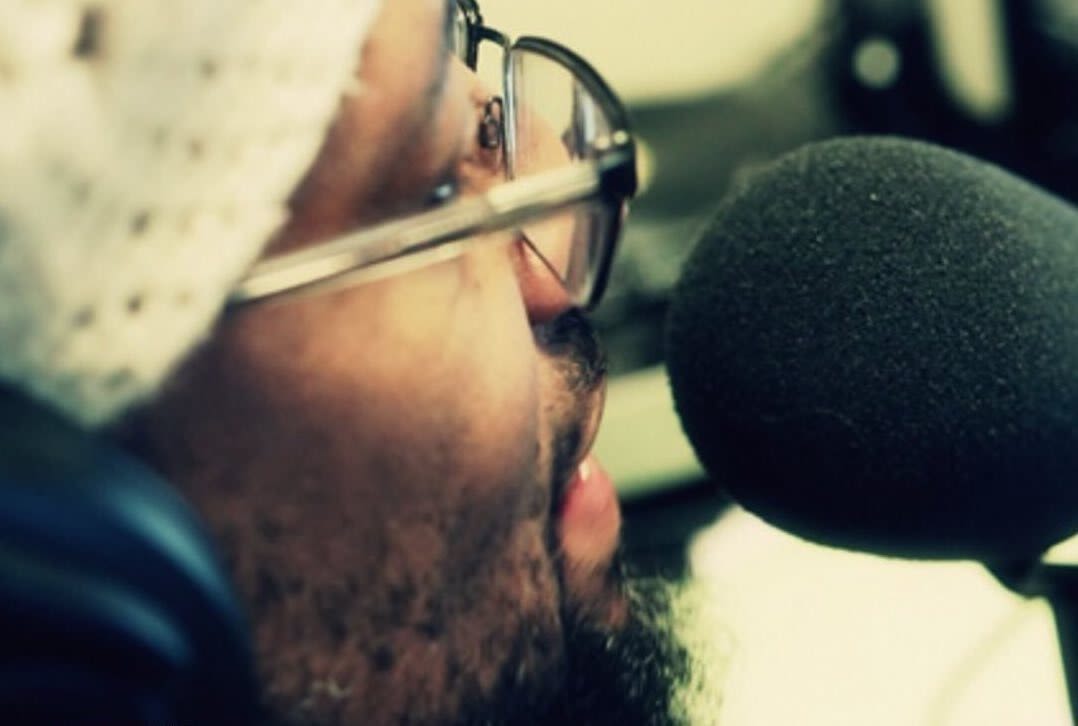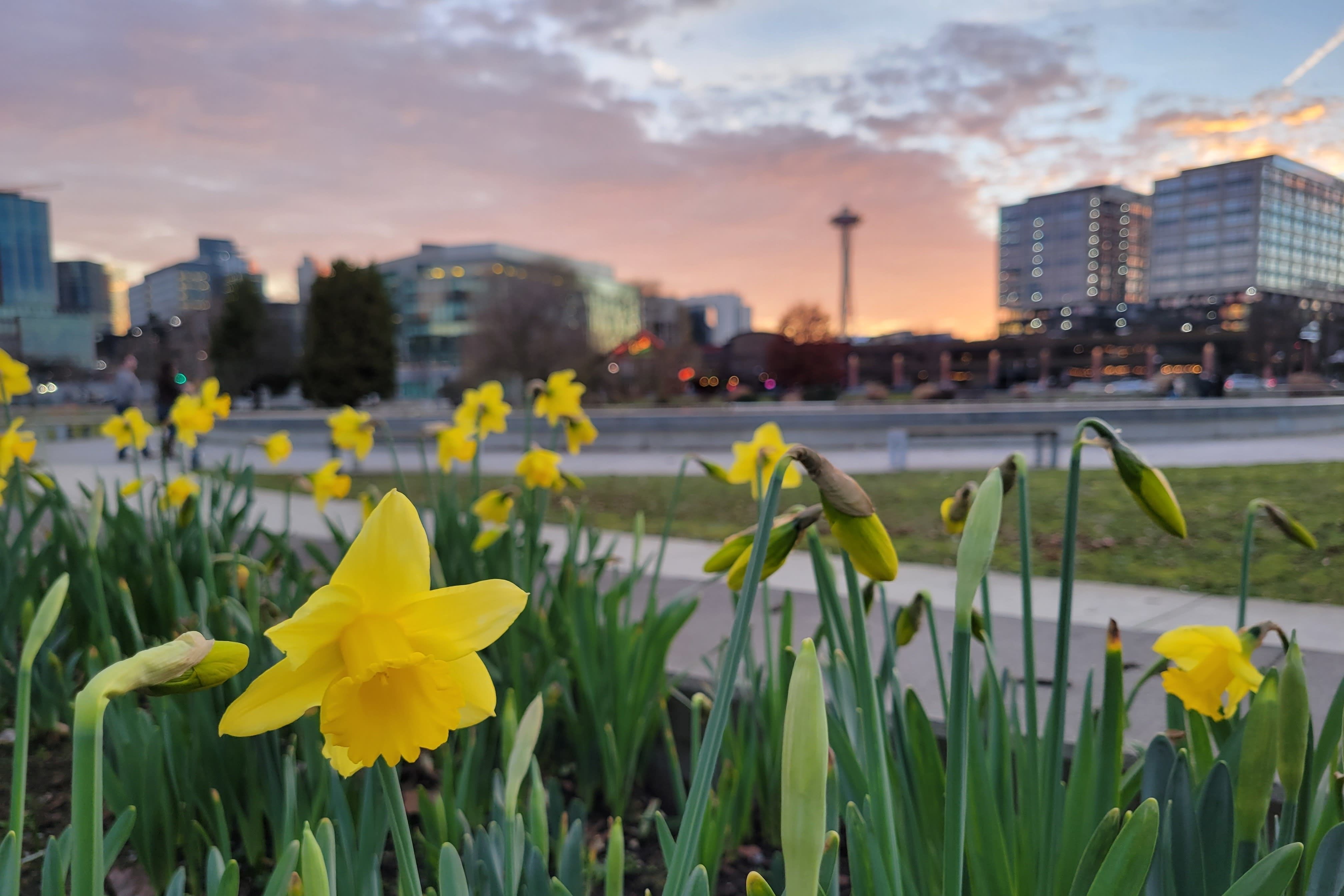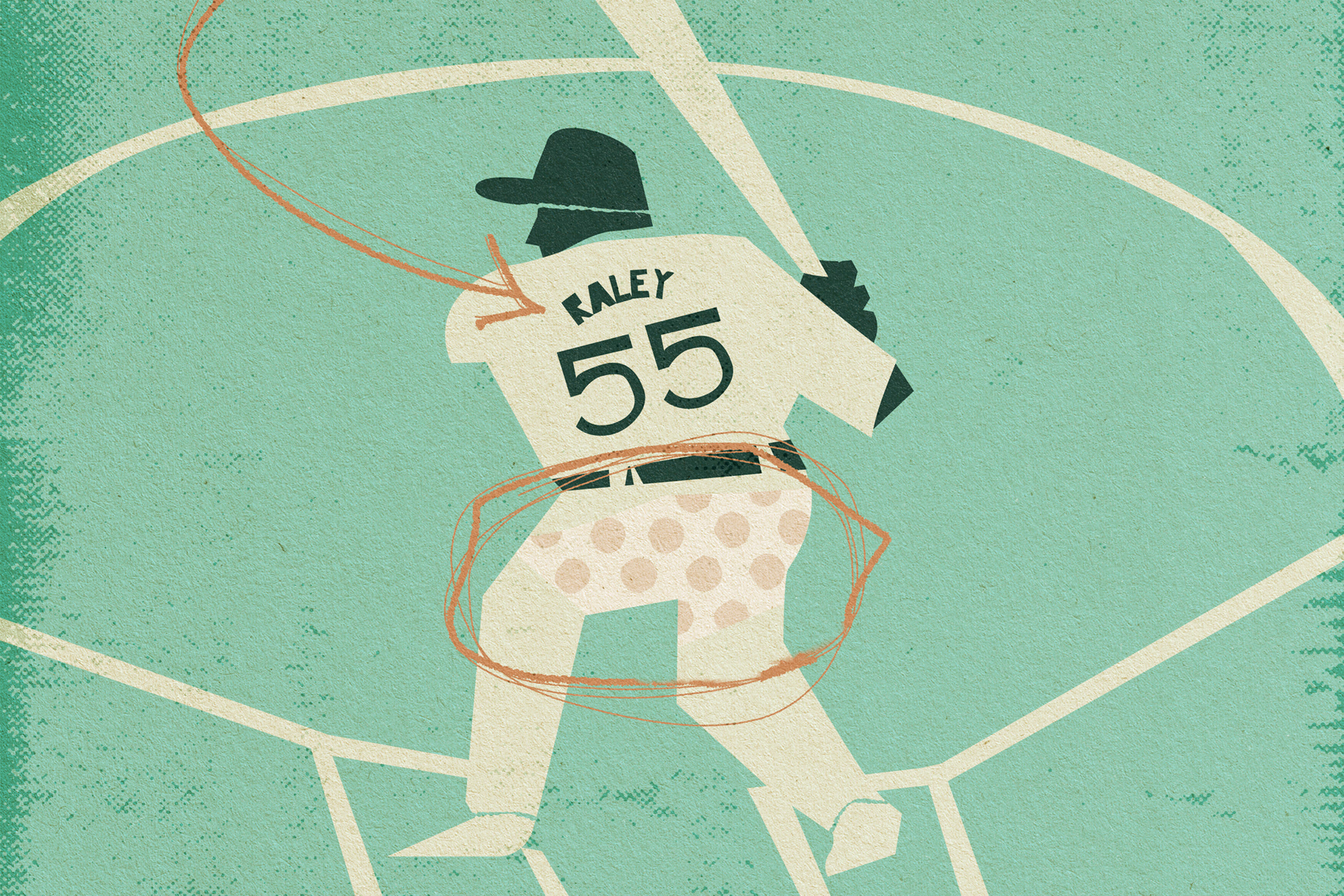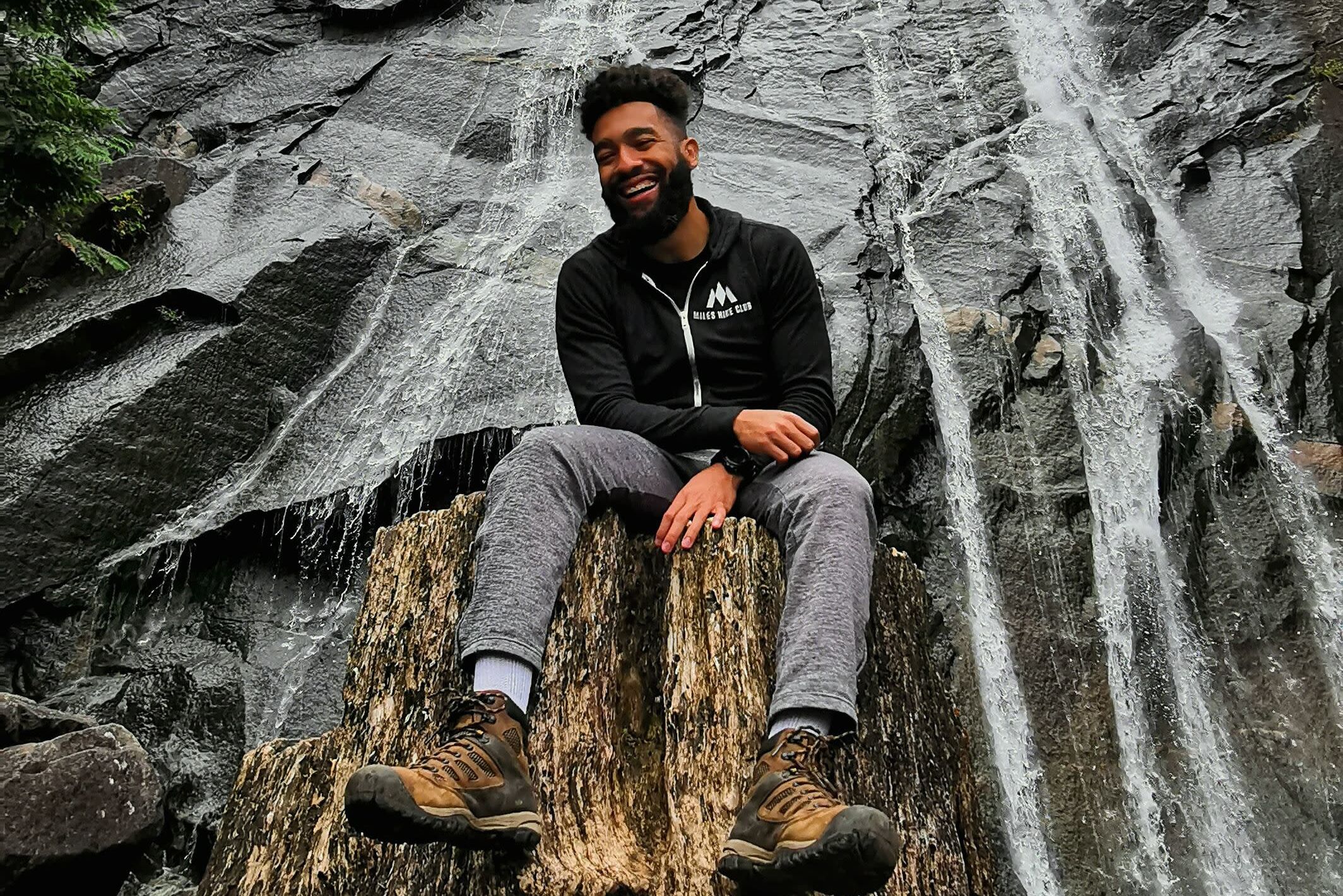Rainier Avenue Radio Celebrates Black History Month

Tony Benton at the mic.
In 2017, Tony Benton booked a study room at the Columbia City library. His low power FM station, KVRU 105.7, had shut down a month before after a disagreement with a partner in the station. But in the library, he was already building something new. Without telling staff, he would set up a microphone and record interviews that he'd upload to a 24-7 online broadcast on his new station, Rainier Avenue Radio. The library eventually discovered his makeshift studio and, though they let him stay, Benton decided to move to a more permanent home after two months.
Now housed on 23rd avenue, Rainier Avenue Radio’s mission is to amplify the voices of Black people and other people of color in South Seattle. This month Benton hopes to do exactly that with the station’s expansive Black History Month programming. A wide range of events started on February 2 including live musical performances at Columbia City Theater (streamed online, of course), interviews with Black trans folks, independent film screenings, and workshops discussing equity and injustice—all aimed to both celebrate Black history and educate people.
Where other celebrations center around one main event, Rainier Avenue lets listeners choose what they find valuable to learn about. “We are going to have, I believe, the most comprehensive, holistic Black History Month celebration in the country because we don’t have any barriers,” says Benton. The events of the past year, especially, create a platform for Rainier Avenue to focus on Black voices in addition to its regular programming. “It’s not an attempt to be divisive. It’s just an attempt to be inclusive, to educate, to bring people together.”
That’s the goal year round: The station’s usual content brings in over 70 community members of different cultural backgrounds to produce shows on everything from comedy and sports to social issues to music, sometimes in different languages. (For instance, the show Fil-Am Radyo airs in “Taglish,” a combination of Tagalog and English.) Even young people create programming that isn't edited or censored. “Essentially we are breaking all the rules of what commercial radio looks like today,” says Benton.
And Benton knows the rules. He spent 20 years hosting the Sunday morning talk show “Street Beat” at KUBE 93.3. There he learned radio’s most important role—to be a trusted source of information for his community, one that doesn’t answer to a parent company or cater to white audiences. But he ran into trouble with this belief after the Telecommunications Act of 1996 stripped some stations of independence. “Instead of being singularly owned mom and pop radio stations all over the country,” says Benton, “you get four or five conglomerates now controlling the airwaves. I was no longer interested in radio.”
Yet he continued in the industry, staying at KUBE until 2011, then creating that shortlived KVRU station, then starting the Creative Arts Digital Media Academy in 2014. He knew maintaining a digital platform and staying connected to the community meant engaging youth, too. That’s why the academy teaches teens what he calls “21st century job skills”—journalism, web design, film, and broadcasting—that he also brought to other South Seattle schools. By the time he founded Rainier Avenue, the school graduated students who would work at the station.
Putting the interests and education of the community first set the foundation for how the station handled the onset of Covid-19. “We were airing conversations with people who were Covid-19 positive before city government and health officials were even acknowledging that it was in our community,” says Benton. With misinformation spreading during the initial lockdowns, Rainier Avenue filled in the blanks with a weekly show about the pandemic's impacts on South Seattle and surrounding areas.
As the effects of Covid-19 became national news, Benton reached out to cities like Bremerton, Edmonds, and Spokane to check in on their Black communities and grew Rainier Avenue Radio’s reach to a statewide audience. “We’re kind of leading that effort as an independent media broadcast,” says Benton. “We will continue to be educated, continue to educate, and continue to respond and be flexible to the needs of the community.”




